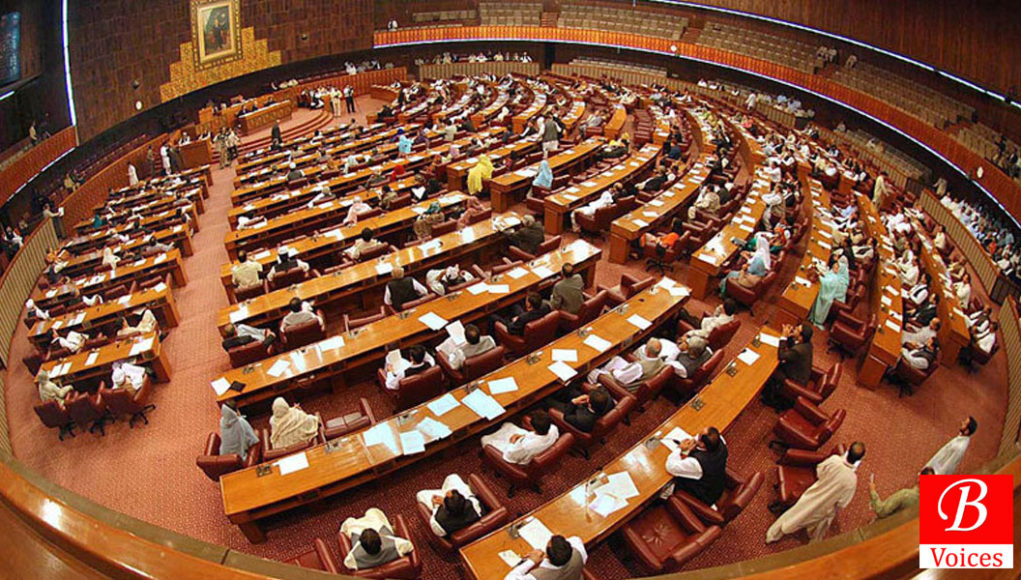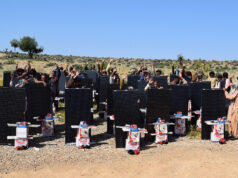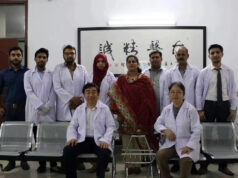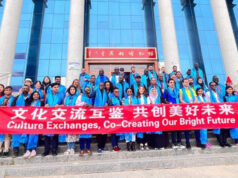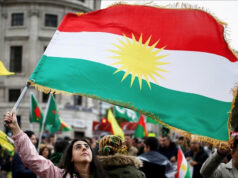 Saddam Shah
Saddam Shah
Pakistan adopted the British form of government in name of so-called ‘Parliamentary Democracy’ in granted. By executing same Constitution of ‘Indian Act of 1935’ with a minor addition of ‘Indian Independence Act of 1947’ passed by British Parliament, Pakistan as a nascent country, became a ‘Republic State’, in which head of the state is directly or indirectly elected by the people, contrary to the British constitutional monarchy.
As the cold war era was the struggle for imposing Democracy to defeat USSR’s communism by the United States, and Pakistan was aligning towards US capitalist bloc, endorsed capitalist economic system with Democracy as a core value of liberalism. But with the military intervention in 1958 and 1977, democracy was twice derailed in a cold-war period and the government was still anti-Communist expansion till the USSR’s defeat in Afghanistan. Bhutto’s fascinating call for socialism got sufficient attention, listening to him as a charismatic leader but his execution vanished the clouds of socialist slogans in the country.
It is admissible that West was politically more mature than East and Pakistan being an ex-colony of British could not be expected better than its previous masters, but that never means its successful way of governance is best for all and should be imposed on all, and it being ex-colony of British, inherited its strong military and civil bureaucracy and so as democracy. But such of governance was initially all artificial, to which people were not naturally attached nor socialized for that western way of running state affairs.
Though voters in the Pakistan know about democracy as something in which majority decides a person to construct roads and bridges and decrease the expensiveness. They also understand democracy as practice of elections, in which candidates from various colorful political parties with their flags and rhetorical statements and some independent candidates with lots of promises, contest election and compete for seat of their constituency, and then a national and provincial governments are made in the parliament and provincial assemblies, and that is set, nothing else almost.
It is not only in case of Pakistan but even in the developed states with some exceptions, indeed. But neither we know about ‘Welfare and Responsible Democracy’ that this society needs hardly, nor the politicians are well-educated about the political concept of democracy or any other form of government. It would be ridiculous to have an imposed system that could not match the requirement of our society. It does not mean that ‘Democracy’ is the worst, rather it depends on who defines democracy and how, and what form of democracy is chosen in practice?
Democracy if taken as a government by the people would have no meaning with politically unaware people, who say what is told to them, who do, what they are commanded. Obviously, there are many pre-conditions for representative democracy like for power of the press, literacy is essential so is for people’s democracy, their political empowerment is necessary for a better system.
Why should one vote, if he does not know anything about government affairs? and why should politically literate one be considered equal to politically unaware and least interested citizen, in terms of one vote system? There are so many criticisms of democracy, and could only be addressed if matching with our society, we would have adopted such form of government_ a flexible democracy. After all, it is not too late and could be reformed through amendments.
People should be directly involved in politics, but to what degree and how, and what are the prime prerequisites for democracy? Can there be democracy without realizing the citizens of the value of their votes? How can we defend democracy with having more than hundred registered political manifestoes, in which hardly three parties are competing nationally with two having strong provincial roots? Is it even possible to claim the national mandate with one-quarter of registered voters in absence of the second stage for the absolute majority? Is Democracy by the people feasible, when the leadership of party system is hereditary and feudal or it is about Rousse’s ‘General Will’?
The answers to these questions create serious hurdles in the defense of ‘Majority Rule’, the foremost critical norm of democracy. But that never means democracy is the worst form of government, but it indicates that our society doesn’t fit into the exact western form of democracy, nor it could be. Democracy must grow, and its evolution should be unambiguously observable by the citizens.
Writer is a student of Defence and Strategic Studies at QAU, Islamabad. Follow him on Twitter: @Saddam_Shah98
Disclaimer: Views expressed in this article are those of the author and Balochistan Voices not necessarily agrees with them.
Share your comments!


